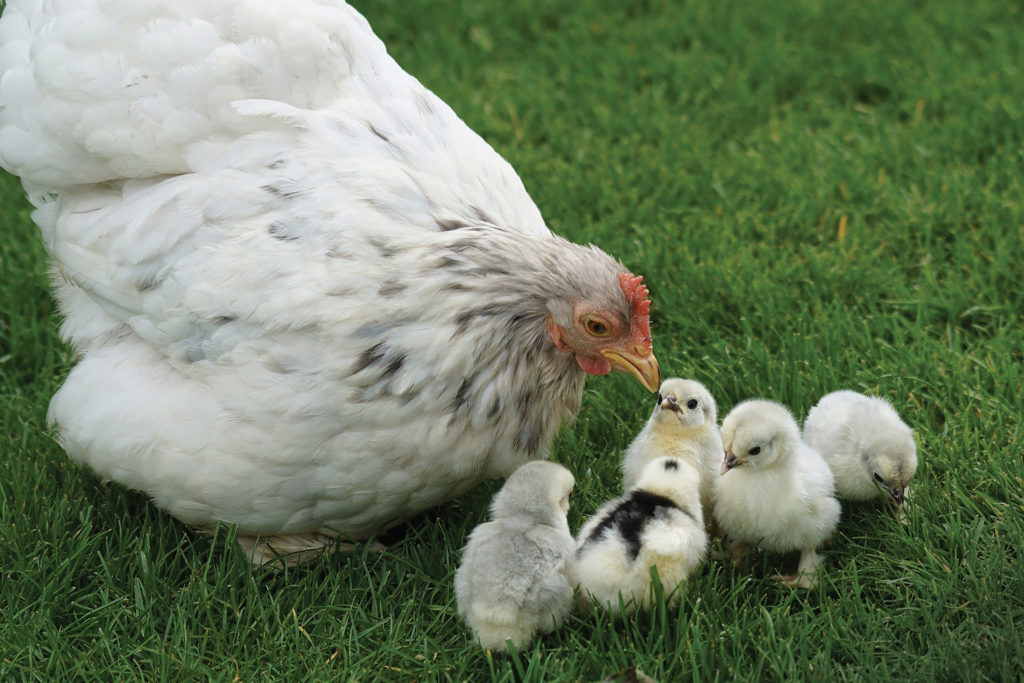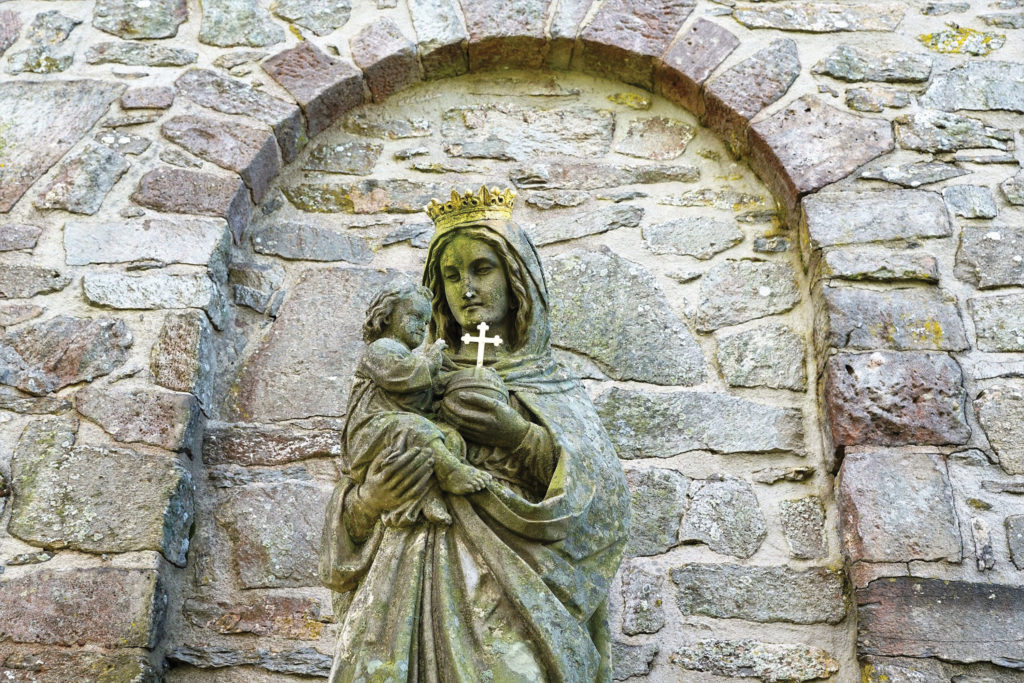YOUTH VOICES

Reclaiming God’s Mystery On The Lost Motherhood Of God
BY Fabian Oliver | Theology student, Pretoria
“JERUSALEM, JERUSALEM, you who kill the prophets and stone those sent to you, how often I have longed to gather your children together, as a hen gathers her chickens under her wings, and you are not willing” (Mt 23: 37).
This reflection seeks to emphasise the maternal nature of God, which has been side-lined in recent millennia for a frequently male-bodied imagery unfortunately associated with power in its clerical ministry. The maternal nature of God, I propose, is both rooted in the history and in the Christian experience, and it also offers positive insight to ministry, spirituality, and an understanding of God, as beyond all else, loving mystery.
For this reflection, I use the thoughts of a local Dominican Friar, Fr Martin Badenhorst. In his paper (Badenhorst 2018), he notes that the experience of the motherhood of God has withered away from mainstream Christianity in general, and Catholicism in particular (2018: 13). Furthermore, that imagery and symbolism of the motherhood of God was popular in the priestly ministry during the medieval period, but lost its impetus after the Reformation. The Roman Catholic Church adopted instead an alternative imagery of ministry rooted in power and domination. Its implications are still reminiscent in the Church’s current struggle to dethrone itself from clericalism. The paternal and maternal imbalance can also be traced in that the Motherhood of God has mostly been mentioned only in discussions around the Virgin Mary and therefore never fully permeating into the ministry of the Church (Badenhorst 2018: 14).

is an example of the motherly love of God. Photo: Photosforyou/Pixabay.
Jesus, the mother hen
In the Gospel of Matthew, Jesus describes himself as a hen who wishes to gather her scattered chicks and keep them safe under her wing (Mt 23: 37). The use of feminine language or imagery to describe Jesus is suggestive of His own humanity and His ministry to heal the broken, comfort the afflicted, and fight for God’s loving justice. The motherly expression of Jesus is perhaps an expression of the motherly nature expected of those who follow him (Christianity). Here, motherly nature is not to be interpreted as lesser than or inferior—which has tended to be the case in most cultural, religious, and societal spaces. Rather, it points to God’s mystery entrenched in parts of our lived experiences.
There are several examples of feminine imagery used in the Scriptures. In Isaiah, God is described as Israel’s midwife: “Shall I bring to the point of birth and not give delivery?” says the Lord. “Or shall I who gives delivery shut the womb?” says your God” (Is 66: 9). In the book of Proverbs, Holy Wisdom is expressed as the feminine Sophia who assisted God in the creation of the universe. Wheeler-Reid (2018) notes that earlier on, in the Gospel of Matthew, it seems that the author compares and even suggests that Jesus is the feminine ‘Wisdom’ mentioned in Proverbs: “…But wisdom is proved right by her deeds” (Mt 11: 19).
English anchoress and mystic, Julian of Norwich (1343–1416) understood God as both our true Mother and Father. Julian and several of her contemporary’s awareness of God as loving Mother was held in unity with the Trinitarian aspect of God as Father, Son and Holy Spirit. Holding both these realities as true seems to be lost from current Christian discourse. Besides the view that rejects God’s identity in terms of gender, God is often portrayed mainly in male imagery or not at all, or God is portrayed in relation to the rejection of maleness or not at all. There remains an obvious need for a ‘both-and’ approach instead of an ‘either-or’ one. Simply put, God (revealed in the Bible and described as Father, Son and Holy Spirit), is the same God who is our loving Mother and so much more. Considering the history of oppression experienced by women at the hands of men, this, coupled with Jesus’ own affinity towards women and all the marginalised bodies, there remains a holistic need for our spirituality to be in touch with the Motherhood of God. This motherhood should encapsulate our lived Christian experience in the way Meister Eckhart (in Fox 1983) puts it: “We are all meant to be mothers of God, for God is always needing to be born.”

Mystery, spirituality, and ministry
To say that the loss of the Motherhood of God leads to an impoverished spirituality is done so in awareness that images and symbols affect our spirituality and ministry. Is it mere coincidence that the diminished emphasis on the Motherhood of God has coincided with the subjugation of women and their lack of numbers in leadership positions in society at large? Is there a shortage of maternal characteristics in society which are expressed in the Gospel as love, kindness, tenderness, wisdom, compassion for the orphan, widow, and justice for the innocent? Hunt-Meek (1980: 36) puts it this way, “We will know that we no longer need to image God in female terms when we are no longer shocked or insulted by the idea” (in Badenhorst 2018: 15).
Ultimately God is a mystery. Catholic philosopher Gabriel Marcel suggests that God is not a problem to be solved, but a mystery to be experienced (Bevans 2009: 14). Franciscan priest Fr Richard Rohr says that all talk of God is figurative and symbolic because all language is metaphor. He adds that words about God are like fingers that point to the moon, but they are not the moon or even the light it gives (Rohr 2017). Therefore, anything we say of God can point towards (or away from) God’s mystery; however, to speak of God only in the male bodied imagery which unfortunately connotes symbols of power, violence, and domination is to misinterpret the mystery of God and subsequent ministry of the Church. Like all other facets of the kingdom of God, the feminine is part of an array of lived experiences which exemplify the mystery of God. Thus, reclaiming the lost Motherhood of God is, in part, to better experience and participate in the mystery of God and better enhance the work of Christian ministry.
